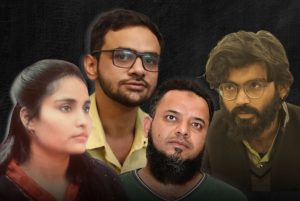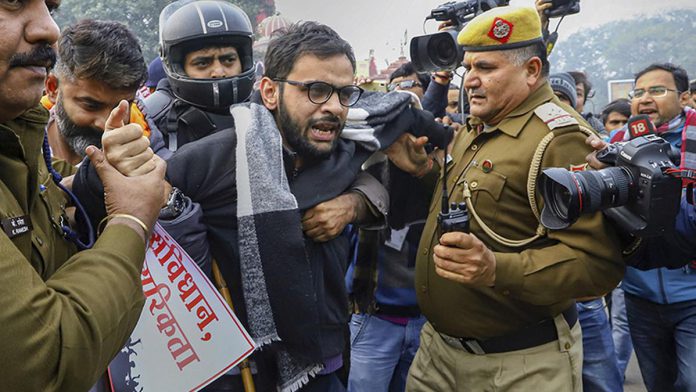Synopsis: Delhi Riots Case hearing in the Supreme Court adjourned to September 19, as bail pleas of student activists Umar Khalid, Sharjeel Imam, Gulfisha Fatima, and others remain pending under UAPA charges linked to the 2020 violence.
Qalam Times News Network
New Delhi | September 12, 2025
Supreme Court Adjourns Bail Pleas in Delhi Riots Case
The Delhi Riots Case once again returned to the spotlight as the Supreme Court on Friday adjourned the bail hearing of student activists Umar Khalid, Sharjeel Imam, Gulfisha Fatima, and Meeran Haider. The bench, comprising Justices Aravind Kumar and N.V. Anjaria, posted the matter for further hearing on September 19.
The petitions challenge the Delhi High Court’s refusal to grant bail under the Unlawful Activities (Prevention) Act (UAPA) in connection with the alleged conspiracy behind the February 2020 communal violence that left 53 people dead and over 700 injured.
High Court’s Earlier Ruling
Earlier, a Division Bench of the Delhi High Court, comprising Justices Navin Chawla and Shalinder Kaur, had dismissed the bail pleas of the activists. The court described the Delhi Riots Case as “not a regular protest” but “a premeditated, well-orchestrated conspiracy,” pointing to speeches and mobilisations allegedly designed to inflame communal tensions.

The High Court further observed that if the “exercise of an unfettered right to protest” were permitted without restrictions, it could “damage the constitutional framework and impinge upon law and order.” It concluded that the role of the accused appeared prima facie grave.
Activists’ Lawyers Cite Prolonged Detention
The accused have remained behind bars since 2020 as undertrials. Their counsels argue that the trial has been excessively delayed, stressing that prolonged incarceration without conclusion of trial amounts to punishment before conviction. They also seek relief on the principle of parity, citing co-accused Natasha Narwal, Devangana Kalita, and Asif Iqbal Tanha—who secured bail in June 2021—and former Congress councillor Ishrat Jahan, released in March 2022.
Wider Implications of the Case
The Delhi Riots Case has raised significant legal and constitutional questions about the balance between the right to dissent and the state’s responsibility to maintain order. Critics argue that invoking UAPA against student activists for organising protests risks criminalising dissent, while the prosecution insists their actions amounted to conspiratorial violence under the guise of protest.
With the Supreme Court now set to revisit the matter on September 19, the case continues to test the limits of constitutional freedoms, the application of stringent anti-terror laws, and the boundaries of state power in handling mass dissent.







